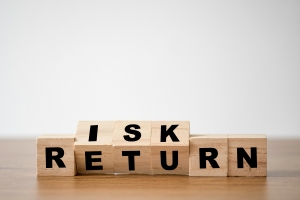...
How To Develop A Winning Investment Mindset
Investing long-term is tough and maintaining that resolve in the midst of difficult economic times is much tougher. With pressing current financial needs, it is easy to relegate long-term goals like retirement planning to the bottom of our financial agenda. Regardless of how challenging it is, if we stay alive, retirement is inevitable. Having a long-term perspective is essential when it is comes to investing towards long-term goals like retirement. Planning for your retirement requires long term thinking, the ability to prioritize the future and stay committed to achieving the comfortable retirement you desire. The question is how do we develop a long-term mindset?
Cultivating a long-term mindset requires discipline. One of the main reasons for financial problems is the lack of discipline. The inability to delay gratification in the short-term may cost you your long-term goals such us retiring comfortably. Also reacting adversely and aborting your plans midway due to challenges can also stand in the way of achieving your goals.
In the face of uncertainties, investors need to be resilient. This is the ability to recover from your own mistakes and difficulties beyond your control. One of the basic concepts of investment is risk and return. Risk is the probability that actual returns will differ from what is expected. Every investment carries some level of risk. To cultivate a long-term mindset and achieve retirement goals, an investor must anticipate and prepare adequately for tough times and be ready to take advantage of opportunities that may arise.
To develop a long-term mindset, you need to have a compelling reason for investing i.e. why are you investing towards your retirement? Investing just for investing sake is not enough. Being disciplined and resilient becomes easy when you have purpose for investing. Set financial goals that are important to you instead of following the crowd so that you are inspired and motivated to still pursue them even when times get tough.
Developing a long-term mindset requires patience, the ability to not be worried or distracted by short-term volatility in the value of the investment and stay invested for long-term regardless of difficulty. It is important to stay focused on the bigger picture.
Having a purpose, being disciplined, resilient and patient are essential requirements for investing in uncertain times. Taking a long-term perspective may help you avoid emotional choices, avoid unnecessary losses and grow wealth over time with small sums invested regularly. History has shown that having long-term mindset increases your chances of yielding positive returns.
---
Axis Pension Trust partners workers throughout their retirement planning journey to ensure they are on track to achieve a dignified retirement. For more information on our services or general enquiries, send an email to This email address is being protected from spambots. You need JavaScript enabled to view it. or call 030 273 8555
Understanding Investment Risk
Assuming Mr. Osei takes a loan from Mr. Azumah at 20% per annum for the next 5 years to expand his business. By giving the loan, Mr Azumah is investing in Mr. Osei’s business with the hope that he will receive interest and his principal as promised. The possibility that Mr. Azumah’s investment will not meet that expectation is termed risk. In our everyday activities we are exposed to all sort of risks and the same applies to investments. Every investment has some level of risk. Unfortunately, we tend to focus more on the potential without understanding the potential loss that could occur. It is important to consider all risks you may be exposed to when investing.
There are two main types of risks associated with investment: systematic and unsystematic risk. Systematic risk is the risk that impacts the market as a whole e.g. inflation, changes in interest rates, cedi depreciation etc. This kind of risk is normally difficult to avoid and diversify. Unsystematic risk is the risk specific to a particular company or asset. In 2022, we witnessed a clear example of systematic risk fueled by the geopolitical tensions caused by Russian-Ukraine war and aftermath of COVID 19. Beyond these broad categories there are some other risks that may affect your investments.
Credit Risk
Credit risk is the risk that a borrower will be unable to make the principal and interest payment on its debt obligations. Holders of bonds are exposed to credit risk due to the contractual arrangement. Normally government bonds have the least amount of default risk and hence should normally have the lowest returns. Corporate bonds tend to be more risky but also have higher return expectations. Currently, Ghana’s government bonds are exposed to credit risk due to government’s inability to fund its obligation hence the introduction of the Debt Exchange Program which is short of investor’s return expectations.
Country Risk
Country risk refers to the risk that a country won't be able to meet its financial obligations. This may adversely affect the performance of the country’s financial securities such as stocks, bonds, mutual funds etc.
Foreign-Exchange Risk
Investing in foreign denominated assets or in a foreign country exposes your investment to foreign exchange risk. The investor needs to consider the effect of changes in currency exchange rates on the value of their investment. If you live in the Ghana and invest the US stock market or buy Eurobond or an asset priced in dollars even if the value appreciates, you may lose money if the US dollar depreciates against the Cedi.
Interest Rate Risk
Interest rate risk is the risk that an investment's value will change due to a changes in interest rates. When interest rates rise, the value of pre-existing bonds and other fixed income securities in the secondary market fall due to more attractive rates for new bonds thus increasing the opportunity cost of holding those. The opposite is true when interest rates fall. Bonds with longer maturities are more exposed to interest rate risk.
Liquidity Risk
Liquidity risk is measures how easy it is for an investor to trade in their investment into cash. The more difficult it is, the more illiquid the investment is. For example, real estate is normally more illiquid than treasury bills. Investors will normally expect higher returns for more illiquid securities. Investors are normally advised to have some liquid assets as part of their portfolio so that they are not forced to sell illiquid assets at a loss.
Inflation risk
Inflation is the general increase in the prices of goods and services or the fall in the purchasing power. Inflation risk is the probability that inflation will reduce the performance of your investment. One of the reasons for investing is to protect the purchasing value of your funds. When inflation high, it reduces or completely wipes of the real returns making investing less desirable.
As mentioned earlier, every investment has some level of risk associated with it. Normally investments with low risk have low potential returns and vice versa. In making investment decisions, investors must determine how much risk they want to take for a desired return. Factors like age, income levels, investment goals, liquidity needs, time horizon, and personality need to be taken into consideration. It is important to diversify your portfolio by investing in different asset classes to minimize risk.
---
Axis Pension Trust partners workers throughout their retirement planning journey to ensure they are on track to achieve a dignified retirement. For more information on our services or general enquiries, send an email to This email address is being protected from spambots. You need JavaScript enabled to view it. or call 030 273 8555












